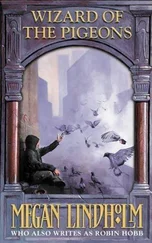Though they performed divination, Kamltl and Nyawlra based their practice on the philosophy that illnesses of the mind, soul, and body were bred by social life. They even wrote down seven suggestions of healthy living:
Take care of the body, for it is the temple of the soul
Watch -ye what you eat ana drink all the time
Greed makes death greedy for life
Cigarettes arrest life; alcohol holds the mind prisoner
Life is a common stream from which plant, animal, and
humans draw
The good comes from balance
Don’t abandon yours for a mirage
“Let’s give them a fitting name,” Kamltl suggested excitedly when Nyawlra first came up with the idea during an evening meal at Chou Chinese Gourmet.
“What shall we call them?” Nyawlra asked. “Seven Commandments of Healthy Living?”
“Or Seven Principles of Grace,” Kamltl suggested. “You used to say grace at Brilliant Girls High School, remember? These commandments will grace life. We give them your names of Grace and Müg-wanja because you came up with the idea.”
“You know I no longer use the name Grace?”
“That is why we should use it. That means that only you and I shall know its origins.”
“Okay then let’s call them the Seven Herbs of Grace. But only on the condition that you and I pledge to be bound by the same commandments. We don’t want to be those who preach: Do as I say, not as I do.”
“Accepted,” Kamltl said. “I swear never to abandon these rules!”
They gave their patients copies of the Seven Herbs of Grace. They even identified a holy day when people were to think of the mind and body as a wholeness that made up a person. To the destitute, they offered a bowl of soup, beans, and rice or ugali. And to all who came there for the holy day, they talked about healthy living, elaborating on the Seven Herbs of Grace. They baptized the occasion the Day of the Way.
This rite only strengthened the people’s claim that there was no disease that could defeat the Wizard of the Crow, because even if it ran he would outrun it, and no matter where it went, even in the soul, it would find him waiting for it with potent potions.
The needy and the curious were drawn to the shrine.
Nobody knows for sure who first told Maritha and Mariko about the Wizard of the Crow, for in their Sunday confessions they never once mentioned the shrine, though a few times they were heard to say that God works in mysterious ways, His wonders to perform on Earth and in Heaven.
Despite their silence on the matter, rumors say that Maritha and Mariko originally went to the shrine as part of their campaign against Satan. They wanted to convert the Wizard of the Crow from belief in satanic rites to Christian faith. Some rumormongers even claimed to have seen the two near the shrine, carrying a big Bible and a big cross, and that as the couple approached the shrine the gate opened to admit them and closed by itself. Inside the compound, Maritha and Mariko were puzzled that their Bible and the cross did not take on a life of their own as they had when the Buler had visited the All Saints, riding a donkey, or when the drama of Eldares had unfolded!
An assistant, or the person they took to be the assistant, received them politely and even offered them a cup of tea, which they quickly declined, saying that they just wanted to see the Wizard of the Crow himself. The assistant showed them where to sit and wait. In the middle of the wall facing them was a small latticed window, a oneway mirror through which Kamltl could scrutinize the clients without their knowing. This helped him not only to study their faces for purposes of divination but also to spot possible trouble, hostile elements hunting Nyawlra.
Now the Wizard of the Crow took time to read the faces of his elderly visitors, slightly amused by the way they sat and looked about them, constantly clutching the cross and the Bible, their only veritable shields against evil.
“What brings you to my door? What troubles you?” the Wizard of the Crow said after opening the mirrored window.
Maritha and Mariko were startled because the voice they now heard did not sound satanic and it did not correspond to the one they argued with in their dreams and nightmares. Nevertheless, they decided to take the offensive to make clear that they were Christian witnesses and were not about to surrender to the great tempter of souls.
“First, we want you to know that we do not believe in magic and divination,” Mariko said bluntly.
“What do you want from me?” the Wizard of the Crow asked, puzzled, though he took pains not to show it.
“To send you back to Satan,” Maritha said.
“Satan?” the Wizard of the Crow asked. “Even if I knew how or where to find him, what would I tell him?”
“That we do not believe in adultery,” Maritha added.
“That though he makes our bodies yearn for others…” Mariko said.
“And we are now advanced in age…” chimed in Maritha.
“And we have given birth to our last…” Mariko added.
“We shall never give in to temptation,” they said in unison.
“What does the body, a progeny of Adam and Eve, really want?” Mariko said, almost as if he were now posing the questions to himself. “Is this not the work of the Devil, now, today, as it was in the beginning? When we look at other people our bodies are on fire with desire, but when we return home our bodies become as cold as ashes. It appears that the children were singing about us…”-and here, Maritha joined in the children’s rhyme:
What belongs to another
Whets your tongue
What belongs to you
Dries up your tongue
For a few seconds they acted as if they were in a childhood world of their own, singing to each other; the Wizard of the Crow had to cough a little to remind them that he was still there, behind the lattice.
Maritha and Mariko were taken aback to find that they had been singing and actually enjoying songs they last sang when they were children, and they now looked at the face of the Wizard of the Crow, a little embarrassed that he had caught them in a foolish act. To cover their embarrassment they listened to him intently, and it took them time to realize that instead of doing the questioning they were now answering without defiance.
“Do you sleep in the same bed?”
“Oh, yes, we are not so rich as to afford the luxury of sleeping in two different beds,” Maritha said.
“But we are not complaining,” Mariko hastened to say.
“We sing to our Lord and Master in gratitude for being alive,” Maritha said, and once again they both began to sing:
Count your blessings one by one
See what the Lord has done for you
The Wizard of the Crow made them stop with his second question.
“What is the last thing you do before you fall asleep?”
“We thank the Lord for looking after us and our children the whole day without harm coming our way. Is that not reason enough to make us say thank you to our maker?” Mariko said.
“And especially these days, when there are so many killings in the country,” Maritha added.
“Nobody is safe, even inside their own houses,” Mariko said.
“That’s why our very last words are to ask the Lord to look after us in our sleep,” Maritha said.
“And to protect us from the wiles of Satan!” they both said.
“So what do you want?” the Wizard of the Crow asked softly, out of curiosity as to what more they could possibly want out of life.
“We want that which heals the body” Mariko said.
“What heals the heart we leave to God,” Maritha said.
Читать дальше












